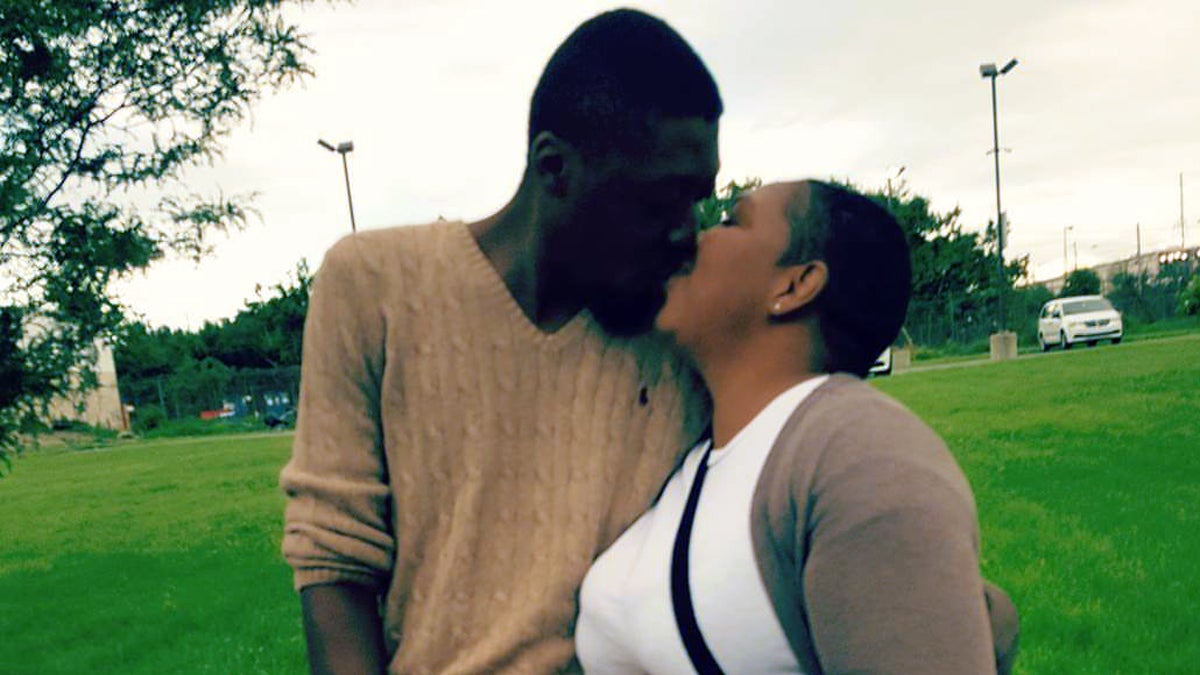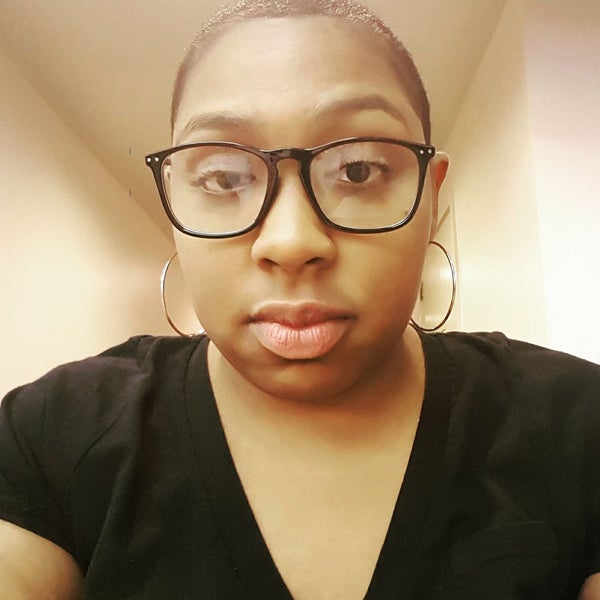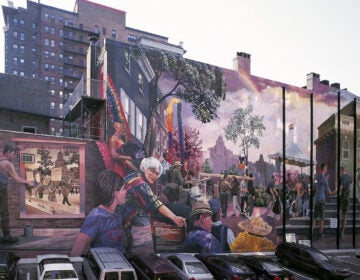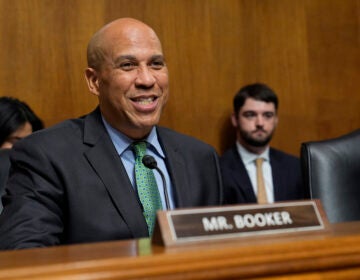Plenty of fish, but very few keepers
Some people even say that if you identify as bisexual, like me, you really shouldn't have any obstacles in finding a partner, because you just have so many options.

The author is shown with her 'twin flame.' (Image courtesy of Lorin Jackson)
Through the month of June, we are asking LGBTQ readers to submit essays about experiences in their lives that have brought them pride, happiness, and triumph. Email speakeasy@whyy.org to contribute.
—
When it comes to dating, people always tell you that there are plenty of fish in the sea. If you haven’t found your minnow yet, you have to just keep swimming, like Dory in Disney’s “Finding Nemo.” Some people even say that if you identify as bisexual, like me, you really shouldn’t have any obstacles in finding a partner, because you just have so many options.
I think there are several misconceptions about what it is actually like to live as a bisexual person — not only these days, but always.
Throughout the 1970s and 1980s, society was still accepting that bisexuality could be an actual sexual orientation. People were growing to understand that sexuality and gender may be fluid, may deny a binary, may encompass everything.
From five years old, I knew that I was not only attracted to cisgender men. I remember being nine and sobbing almost every night for a year with guilt that I had played 90210 with a neighborhood girl my age. I played a guy and she played a girl. We reenacted what we saw on the show. I felt like something was wrong with me, that I actually enjoyed spooning with her on our back patio or kissing her neck. In the moment that I was exploring my body with her, I experienced joy with another person.
As I got older and explored my sexuality in the Bay Area for several years after college, I realized I was also into people who may not fall into either of those gender categories, or may fall into both, or all. Things started to change.
I have three siblings. Of the four of us, I’m the queer, gender non-conforming sheep. I love my siblings, but I often felt incredibly different from them. My body image wasn’t very strong for a long time. I carried some residual wounds from knowing as a young person that my sexuality and gender weren’t fitting neatly into the small-town ideals of where I grew up. Long story short, I didn’t date for a long time. I surrounded myself with books, knowledge, and nerdom. Libraries were where I felt the most safe, and academics became an outlet. I actually became fairly successful from those endeavors, but my dating life was either non-existent or horrifying.
I had no idea what I was looking for, and I was scared to disclose certain parts of my identity to different people. If I dated a lesbian, I often chose not to tell her that I was also interested in men, for fear they may lose interest in me or think that I was not truly into them. If I dated a heterosexual man, I might not tell him that I was also attracted to women. Many cisgender men I dated seem to think I was interested in threesomes because I’m bi, but I wasn’t particularly kinky at that time.
I constantly felt like I was hiding, and I felt like I was missing the mark in my relationships. I would date people who obviously had no long-term potential with me, or folks with whom I could get away with not being honest about who I was. They would know very little about me, and I would refuse vulnerability by being the one in control. I may be the one with stable housing, or the one with steady employment, or the one with more education. I would purposely be with people I could help or serve or support. I didn’t look for people who could fully embrace or love me because of how I felt about myself. My relationship prospects looked bleak, tired, worn, and gray.
 Lorin Jackson
Lorin Jackson
When I moved to Philadelphia, I met a coworker’s godson. I moved to the area of the city where she lived and would see her godson all of the time without thinking anything of dating. Ha, dating?! I had to focus on my job and 401k, anyway. I needed an apartment, not a date.
He helped her a lot around the house, and we developed a friendship. He was about four years older than me, responsible, loyal. I thought about advancing things with him but turned away from it at first. I thought that us dating was maybe too close to my job. Also, did I want to date a heterosexual man? Would parts of my identity be missing? Would he accept me for not being a stereotypical femme or straight woman?
Well, I can tell you that my voice shook when I told him that I identify as queer, that I use she/her as well as they/them pronouns, that I like things he may think traditionally women don’t like or do — things he may consider masculine. I was scared to be myself, scared to identify with who I really was and open myself up to the criticism, to the choice that he would have to make about whether or not to start a relationship with me.
After I had reached a certain amount of radical self-acceptance, I came to him and said in no uncertain terms, “This is all of me. You can take it or leave it.”
Much to my surprise, he responded kindly and said that he really saw me and that he loved what he saw. Regardless of the labels, this person, this twin flame, was in love with me and all that I was from the crown of my head to the bottom of my feet. He accepted me and embraced me as I was, for who I was. Neither one of us has experienced love like this before. While we are just starting on what I hope will be a long journey toward deepening our connection, I can honestly say that he has brought me the unbridled joy that true acceptance and love can bring me as a queer person.
I was depressed and thought that, with my kaleidoscope collage of a self-identity, I may not find someone who could love me, but I did. I am joyful that there was a fish who was looking for a unique fish like me.
—
Lorin Jackson is a librarian at the AIDS Library of Philadelphia FIGHT. Her background includes working with youth of color as a teacher and mentor. In her spare time, she likes to DJ and spend time outside. Her work centers on healing from inter-generational trauma in the cultivation of alternative futures.
The views included in this article are her own and do not reflect the opinions of Philadelphia FIGHT.
WHYY is your source for fact-based, in-depth journalism and information. As a nonprofit organization, we rely on financial support from readers like you. Please give today.



